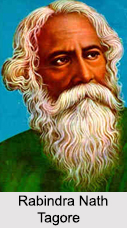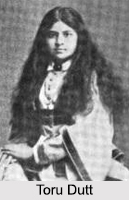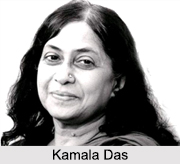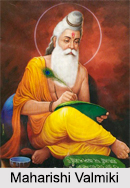 Indian Poetry reflects different spiritual traditions within India. These were written in a variety of Indian languages such as Sanskrit, Classical Sanskrit, Hindi, Oriya, Tamil, Telugu, Kannada, Bengali and Urdu. Persian and English language also has a strong influence on Indian poetry. Many Indian poets have been inspired by spiritual experiences. Poetry is the oldest form of literature and has a rich written and oral tradition.
Indian Poetry reflects different spiritual traditions within India. These were written in a variety of Indian languages such as Sanskrit, Classical Sanskrit, Hindi, Oriya, Tamil, Telugu, Kannada, Bengali and Urdu. Persian and English language also has a strong influence on Indian poetry. Many Indian poets have been inspired by spiritual experiences. Poetry is the oldest form of literature and has a rich written and oral tradition.
Historical Background of Indian Poetry
India has a long tradition of arts and poetry from ages. It is also in this very context of the historical evolution of Indian poetry, that the significant phases of maturing in verse can be witnessed. The much discussed germination is divided into the periods, comprising: Indian Epic Poetry and Indian Medieval Poetry. Both these ages, with the advancement of Sanskrit and additional Islamic development of Urdu in "darbars" (the king`s court), had induced Indian poetry to travel to majestic and subliminal heights. The Epic Age was predominated by the Sanskrit language and its tremendous reach, whereas, Medieval Period was overridden by the overwhelming of Urdu and poets penning for the said language.
Indian poetry absolutely did ponder upon the dissimilar and various religious and spiritual traditions that have since prospered in India. The dissimilar strands and astounding varieties of Hinduism come under profound scanner, when the most striking Indian poetical genre comes from the devotional Bhakti Movement, with luminaries like Mirabai, Ramprasad Sen, Kamalakanta. Another significant element in India`s sanctified and pious life of divine poetry is this devotional bhakti tradition of Vaishnava Hinduism. The poetry of the Upanishads and Vedas is downright soaked up with the tremendous confidence of the Vedic seers. Such poetic tradition in India, emote an exalted and complex message of `spiritual transformation` as can seen below:
 Death to Immortality
Asato ma sad gamaya.
Tamaso ma jyotir gamaya.
Mrtyor ma amrtam gamaya.
Death to Immortality
Asato ma sad gamaya.
Tamaso ma jyotir gamaya.
Mrtyor ma amrtam gamaya.
Lead me from the unreal to the Real.
Lead me from darkness unto Light.
Lead me from death to Immortality
Numerous Indian poets have been voraciously instigated to write poetry in an endeavour to
express their almost transcendental mystical experiences. Adi Shankaracharya was India`s leading exponent of Non-Dualism (Advaita).
The period from 1850 to 1900 is the imitative period when the Indian poets were passionate poets. The era from 1900 to 1947 is the assimilative period when the Indian poets tried to incorporate the romanticism of the early 19th century British poets. The “new†romantic of the self-indulgent period was for expressing the realization of the Indian renaissance between nationalism and political changes which in the end led to the accomplishment of political freedom in 1947.
Derozio`s poems, Kasiprasad Ghose`s "The Shair or Ministrel" and other poems, Michael Madhusudan Dutt`s "The Captive Lady" Manmohan Ghose`s "Love Songs and Elegies" are a demonstration to the creative rise timed by the romantic spirit encouraged by the literary renaissance. Toru Dutt was alone among the romantic poets of the first phase puts an emphasis on India and her heritage by putting into verse a large number of Indian legends. Toru Dutt was also an ancestor in respect to the use of tree in verse in "Our Casuarina Tree", a predecessor in respect of childhood memories recalled with reminiscence or regret. The poetic output of Sarojini Naidu, Rabindranath Tagore, Aurobindo Ghose and Harindranth Chattopadhyaya was creative. Romanticism of these Indian  poets was fraught with nationalism, spirituality and mysticism.
poets was fraught with nationalism, spirituality and mysticism.
During post-Independence times, Indian poetry and poetical genres had welcomed to embrace the emergence of Subaltern Poetry with a group of poets, who hailed from the marginal section of the society. Female poets and their wonderfully channelled verses have been an innate part of Indian poetic history. In historical times, poetesses like Gargi Vachaknavi and Lopamudra, also serving as philosophers had illuminated the poetical scenario in India, the illustrious lineage of which is still borne in present times, with the scenario being ruled by names like Nabaneeta Dev Sen, Kamala Das, Sujata Bhatt and others. Nabaneeta Dev Sen`s "The Yellow River" aesthetically eulogises the overpowering force of the spirit of revolution and necessary changes, symbolised in the image of the yellow river which spouts forth into “the great wall of china†that “rises within/blocking everything†in thethrottled prison of rigid, narrow psychological world.
Indian Poetry in Modern World
Even in the contemporary era, India has produced poets who stood up to their beliefs and wrote for harmony, change, rights and rebellion. Some of these poets even lived by what they moralized and have become legends. Indian poetry of the contemporary period also encounters striking experimentation in forms, devices, voices and motifs, as one tries to pursue in that thin line of almost perfection hidden within. Chandra Raut`s "Snake" (Oriya) explores Christian myth and Biblical imagery, while Keki Daruwalla`s "A Parsi Hell" (English) caters to a Parsi heritage. Then again, Nilmani Phookan`s picturesque imagistic magic is demonstrated in his poems. His poems delightfully pertain to the Assamese tribal myth and folklore, the rhythms of village life, while Nilmani Phookan himself luxuriates in the enigma of the so seen poetry in India. Indian poetry with its everlasting appeal will exist as long as emotions will continue to evolve within each human being, as long as man will breathe,  his heart will beat.
his heart will beat.
Famous Indian Poets
Some of the famous Indian Poets of all time are Rabindra Nath Tagore, Sarojini Naidu, Sri Aurobindo Ghose, Kamala Das, Gieve Patel, Kazi Nazrul Islam, Faiz Ahmad Faiz, Kadammanitta Ramakrishnan, Daya Pawar, Mahadevi Varma, Balamani Amma, Mira Bai, Amrita Pritam, Lakshminath Bezbarua, Hemchandra Goswami, Jibanananda Das, Gulzar, Javed Akhtar and so on.
Poetry as a perception is much fuller than it being just a notion of verse-composition. It is the "rhythm of existence" which one experiences in living the life-like, the divine conjugation of lovers or even a significant discovery about the self or the world, which in succession, gives birth to poetry.













